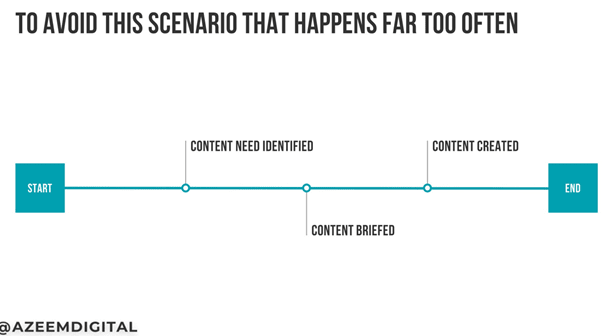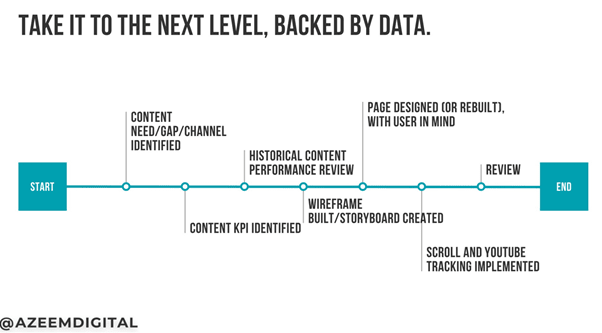
Why You Need to Measure Your Own Content Performance
Content is a core component of anyone’s marketing plan or activity. So we were delighted when Azeem Ahmad spoke at our October Marketing Conference webinar about how his team at Staffordshire University use performance data to inform content strategy and creation.
I’m the Digital Marketing Manager at Staffordshire University and part of the team that very recently won Outstanding Marketing / Communications Team at the 2020 THE Awards! Outside of that, I’m a Digital Marketer with over 7 years’ experience in multichannel marketing, from strategy to execution across various disciplines including PPC, SEO, Programmatic, and Social Media marketing to name a few.
I’m also an international conference speaker, a UK, US, and Global marketing awards judge, and I host my own podcast too – pretty busy outside of work as well as at work!
This blog post is about the benefits of being able to measure your own content, and forget relying on industry standard benchmarks.
Why?
Outside of the obvious benefits of forgetting the ‘one size fits all’ method – the reason why your prospective students are coming to your website and not your competitors, is because they are interested in YOU. Something about your institution has resonated with them enough to win the click, and they are ready to be informed by you. Are you ready to give up on your prospective students once they’ve arrived on your website? Thought not.

In my recent presentation at the FindAUniversity Marketing Conference webinar, I shared this slide. It’s all too common a scenario. A need for content is required, it’s briefed, and then created. That’s it. Ask yourself this now, in your university marketing team – who’s measuring content performance? If you know who, then how are you using that to improve your current content requirements?
The benefits
The benefits of measuring your own content performance are numerous. Knowing how far users have scrolled to on a webpage, or how much of a video they’ve consumed can really inform your content strategy. It also has benefits for your other teams internally too. You get actionable data from your own website.
Here’s an example:
I was once asked to add social proof to a purpose-built landing page. I was also informed on where I should place this on said page. Using data from the website and our own user behaviour, only 14 people had ever got that far on the page in the time specified. It would have also involved time from the web team to help code, build and create this. Knowing the value of the work before it is being briefed in is invaluable.
You can also use data about how your own prospective students behave on your website, what channel they came from, what device they are on, to really tailor your recruitment content towards them. Take your content strategy to the next level, like the image below – and succeed.

You can find out more about me on my website, via Twitter or you can use the contact form on my website to get in touch. If you’re interested in listening to my podcast, just search “Azeem Digital Asks” on Spotify, Apple, Google, or most major platforms.
If you’d like insights from content and activity on our FindAMasters and FindAPhD websites, please get in touch with your Account Manager, email [email protected] or call +44 (0)114 268 4940
You may also like...
November Postgraduate News Wrap-up
We’ve summarised the main postgraduate news stories and commented on the impact and opportunities they’ll bring.
What’s Caught Our Eye in University Marketing & Recruitment in October/November
Take five and look at what's got our attention in the sector. They may give you some ideas for your own marketing and recruitment.


